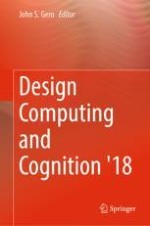2019 | OriginalPaper | Chapter
Cognitive Style and Field Knowledge in Complex Design Problem-Solving: A Comparative Case Study of Decision Support Systems
Authors : Yuan Ling Zi Shi, Hyunseung Bang, Guy Hoffman, Daniel Selva, So-Yeon Yoon
Published in: Design Computing and Cognition '18
Publisher: Springer International Publishing
Activate our intelligent search to find suitable subject content or patents.
Select sections of text to find matching patents with Artificial Intelligence. powered by
Select sections of text to find additional relevant content using AI-assisted search. powered by
